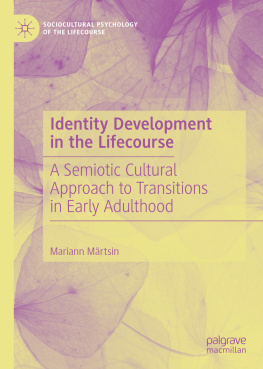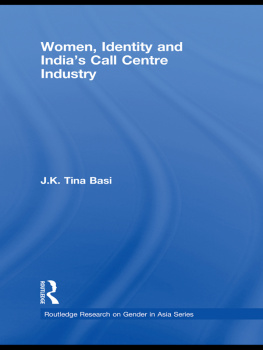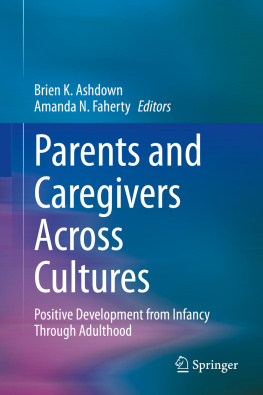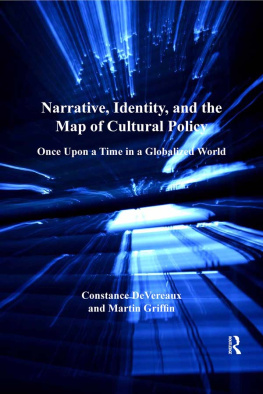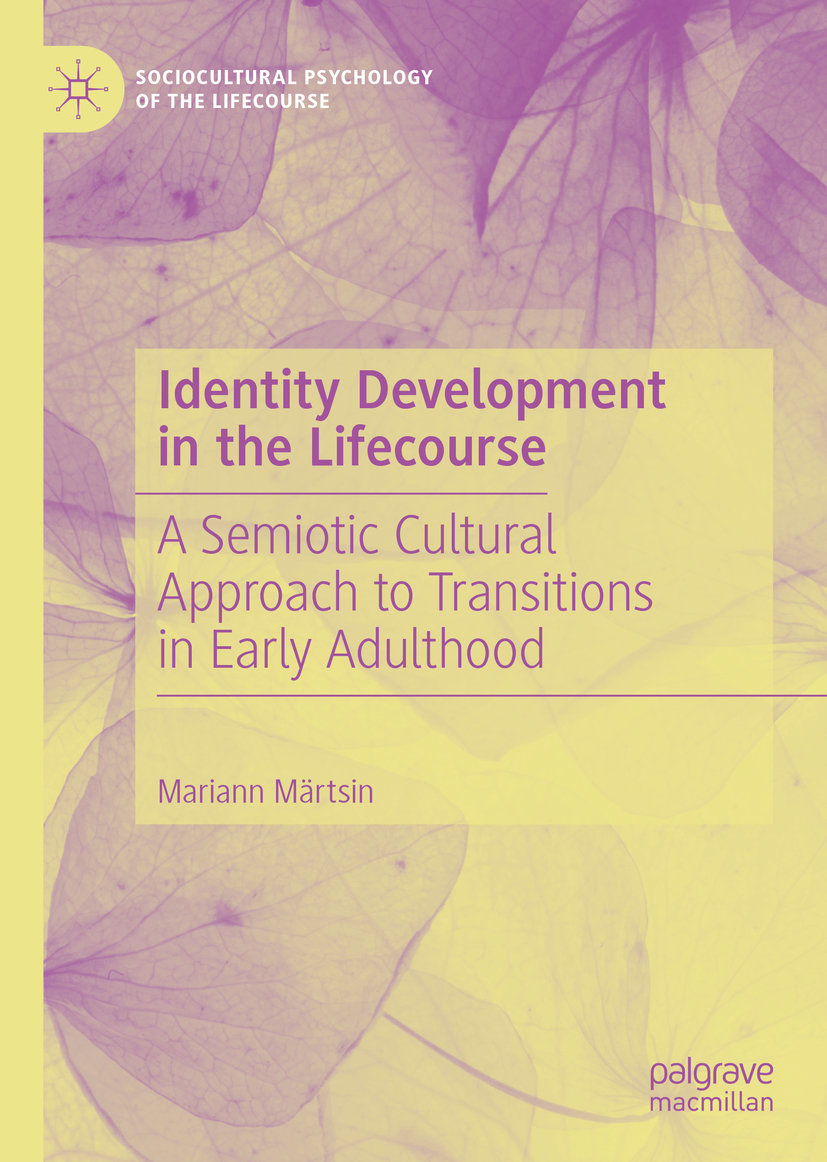Identity Development in the Lifecourse
This book explores the development of young people over time, as they leave their home country, go abroad and define their own goals and interests. It is about peoples lives as they unfold, and as such, it narrates stories that could be that of many of us; it is also is a theoretical book, asking fundamental questions about human development. For these two reasons, I am very happy to inaugurate this new series of book on the lifecourse with Mariann Mrtsins monograph.
The aim of this series is to investigate, in depth, the course of lives of people in their sociocultural environment. Although that is not a new question, researchers rarely take the time to fully focus on one person, or a small group of persons, to understand the specificities of the lives they are engaged in, in the times and places in which they live, which present them with specific challenges. Only such focus can enable us to identify the process by which people deal with life: how they understand themselves, their relation to others, how they imagine their future, and how they think that their past led them to their present. Indeed, not only do then people have to solve these issues once, but through time, they change, and their understanding of what is going also does; in the meantime, the environment in which they made their past choices, and the one they will have to face, are themselves in transformation. Therein lies the challenge of a sociocultural psychology of the lifecourse: to rethink psychological theorising in light of the course of a situated life.
InIdentity development in the lifecourse: A semiotic cultural approach to transitions in early adulthood, Mariann Mrtsin gives herself the task of accounting for the lives of eight young people, born in Estonia, who decided to move the UK for their studies. Although this little adventure in peoples lives may seem at first sight, anecdotic, it actually enables to reveal the richness and complexity of unfolding young lives in the twenty-first century. This is the strength of this monograph in lifecourse research: to turn a common fact into the site of acute and deep observations and render visible what is not. Mariann Mrtsin proposes to consider the changes experienced by these young people as a double movement: a mobility, in geographical space, and a transitiona process of change initiated by rupturesin the timespan of their lives. This double change engages peoples beliefs about themselves, transforms their relationships to their families and friends, brings them to discover their strengths and vulnerabilities, to confront with others representation of what life should be, and to re-examine their values and goals. The strength of the book is that this enables to build an original theory of identity: rather than being a structure, or a category, or a statement, identity is shown to be a semiotic process, a future-oriented guidance constantly renegotiated in the light of past, current and future experiences. In what follows, I wish to highlight some of the key contributions of this elegant monograph.
Forever, Young
First, topic wise, youth and the extended adulthood has been a preferred topic of psychologists and identity researchers for a long time; a landmark in that field is, of course, the work of Erik Erikson (Erikson, 1968). Since then, societal transformation has led to a double dissolution of the thresholds traditionally bordering adolescencein it, with the lowering of age of puberty, and the increase of a youth fashion for childrenand out of it, with youth conduct admitted now in people all along the lifecourse as lifestyle, family arrangement, professional careers and body-care have been deeply transformed. Whether youth has been simply extended into late adolescence or emerging adulthood or whether adulthood still exists at all or not (Arnett, 2006; Hendry & Kloep, 2007), there is still an effect of first time for many people engaged in their youthand foremost, this is the time during which, for the first time, they have to engage their symbolic responsibility and define a system of orientation that functions as a moral or personal compass (Schwartz, 2016; Zittoun, 2006, 2007). Over the past ten years, the field of youth studies and emerging adulthood has considerably expanded in social sciences and psychology, with a more clear recognition of the tensions that young people are facing, now coined by authors as specificity to that period in life. Hence, Threadgold conceives young people

